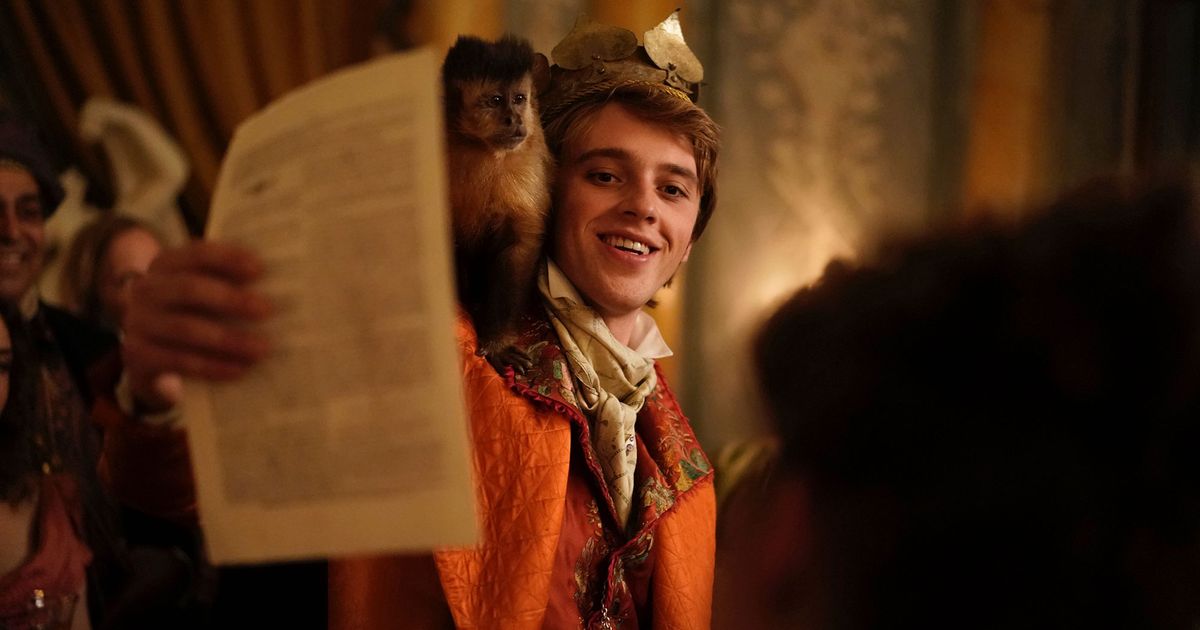
The Savage and Catty Lost Illusions Only Looks Like a Stuffy Period Piece
Lost Illusions arrives on our shores trailing clouds of awards glory, but don’t hold that against it. Xavier Giannoli’s handsome adaptation of Honoré de Balzac’s mid-19th-century novel won a slew of Césars in France, including Best Picture, beating out such critically adored titles as Happening and my beloved Annette. Such a pedigree may suggest something stately, mannered, and, frankly, a little boring. But the film turns out to be a fast-paced, surprisingly dishy melodrama with at least one spiritual foot in the present. Giannoli knows exactly which buttons to push and for how long. He takes what could have been a fussy adaptation of a dusty tome and turns it into something hugely entertaining.
Lost Illusions, which may in truth be Balzac’s greatest novel, follows the fortunes of Lucien de Rubempré (Benjamin Voisin), an aspiring poet and printshop worker from the provinces who falls for an older, wealthier married woman, Louise de Bargeton (Cécile de France), and heads with her to Paris, where he hopes to establish himself as a writer. Unable to publish his work, rejected by scandalized aristocrats, and completely shut out of the society circles in which Madame de Bargeton gets to travel, he lands a job at one of the city’s thriving small newspapers.
There, he gets a rather dispiriting introduction to how journalism works. The papers aren’t interested in reporting any semblance of the news. Rather, various patrons pay to viciously take down or effusively promote different subjects, and each article is up for the highest bidder. Newspaper offices look more like rowdy gambling salons: The boozed-up, boisterous staff use monkeys to decide which books they’ll write about and ducks to decide on the fake news they’ll cover. (Canard, get it?) The writers are merely there to lend their wit and flowery prose to whatever target they’ve been given, and soon Lucien becomes a critic of some repute and growing fortunes but little integrity. (Is this how some filmmakers see their critics? As ambitious, bad-faith actors beholden to status, money, and popularity? If so, I have some terrible news for them — and for us.)
But it’s not just the newspaper industry that works in this way. The city’s theaters, we soon learn, are prey to the same forces. Powerful inpiduals pay to plant audience members to cheer or boo certain works and performers. Up and down the social chain, nothing is sacred or true: Different political factions and tribes and papers and writers and publishing houses constantly war with one another, all gleefully partaking of the moral rot at the heart of this culture — even as everyone adheres to strict codes of behavior and propriety. The hypocrisy is enough to make you scream.
Giannoli has a way with cinematic shorthand and has paced this thing out very well, breezing through Lucien’s origins and establishing his narrative dilemmas with just a few deft brushstrokes. The director takes us on an enjoyable journey through the workings of this society in the way he might show off an intricate, newfangled machine, with equal parts fascination and outrage. His characters are similarly self-aware. An established writer who moves in higher circles, Nathan d’Anastazio, played by a terrifically charismatic Xavier Dolan, becomes both a mentor and a rival to Lucien. (Nathan doesn’t appear in Balzac’s original, as I recall; he’s a composite of several characters from the book.) A savvy and cynical newspaper editor, Étienne Lousteau (Vincent Lacoste), similarly takes Lucien under his wing and shows him the corrupt wonders of this world. Étienne has no illusions about his profession, but he values his own twisted version of independence — he won’t be swayed by power, only money.
Giannoli takes his share of liberties with the original (he has to; the book is dense and long), but he has effectively channeled his source’s moral opprobrium. Balzac himself portrayed this world in painstaking, infuriating detail, having run some newspapers in his day. (It’s worth noting, however, that the author was not above some score-settling in his depiction of the journalists of the time; the industry was not quite as soulless as he made it out to be, and there were some bigger, established papers that maintained some semblance of dignity.)
Giannoli is walking in the footsteps of masters, but he’s smart enough not to emulate them. For all the film’s explanation of the rituals and customs of this society, and for all its elegant period detail, Lost Illusions never quite loses itself in textures and gestures the way Martin Scorsese’s The Age of Innocence did when portraying a world of similarly alien morality. And while Lucien’s fate has a cool Kubrickian savagery to it, Lost Illusions doesn’t dare flirt with cosmic or existential questions, à la Barry Lyndon. Giannoli probably understands he has no business trying to match or evoke those films. He’s more interested in telling a ripping yarn, and he’s got a wonderfully wild and catty one here.

































